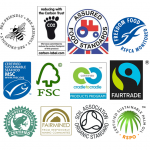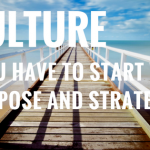Thanks to the Marketing Society for a great Annual Lecture last night – by Paul Polman, CEO of Unilever… If the assembled 300 audience didn’t realise it before, by the end we were quite clear he’s one of the most influential men on the planet, outgunning David Cameron et al by some margin… running an organisation that operates in 180 countries and serves 2 billion of the 6.5billion population gives that potential, but his desire to change how business works, to be sustainable not just profitable, makes him an awe inspiring standout character.
His fast paced delivery covered a range of challenges for marketing, and a global view of the business world and it’s political/social context, but it was in the Q&A ably led by Martyn Lewis (veteran broadcaster, and you can see why), that some of the real gems came to light. Thoughts to take away included:
1. Think of consumers as citizens. And of all the ways they are crying out for change, faster than governments, organisations and companies can realistically deliver. But they don’t have the answers – if a business can help by providing opportunities and solutions, they’ll be welcomed.
2. Unilever want to try decoupling growth from environmental impact – doubling turnover and profit, halving environmental footprint. It’s making them a standout employer, and has turned around it’s fortunes from being a cost cutting business 10 years ago… but not without difficulties of managing shareholder expectations from short to long term. Seems to have paid off, with share price up 68% in 3 years.
3. Marketers are wasting too much time debating whether the small but growing group of consumers who want to buy responsibly sourced products are niche. It’s archaic to sit back and wait until the mainstream tell you that’s what they want. It’s up to marketers to lead, to shape change, and go beyond the basics of quality and value. And most importantly to be positive, inspiring, exciting – not using the language of government/NGO messages of ‘shouldn’t/can’t’.
4. Marketers need to embrace the role and impact of the corporate brand on individual brands – they need to connect in terms of purpose, and reinforce through open-ness and transparency.
5. The hardest new skillset challenges for leaders and marketers are a) to feel comfortable with ambiguity (driven by volatility and sudden changes), b) to work in partnership with many more people (eg governments, NGOs, competitors), and c) to really deliver transparency (opening up your company to consumers is undeniably difficult, but essential)
And of his summary of the sustainability challenge – my personal favourite nugget-
‘In the next 40 years we need to make as much food for ourselves as we’ve made in the previous 8000 years’. Gulp



